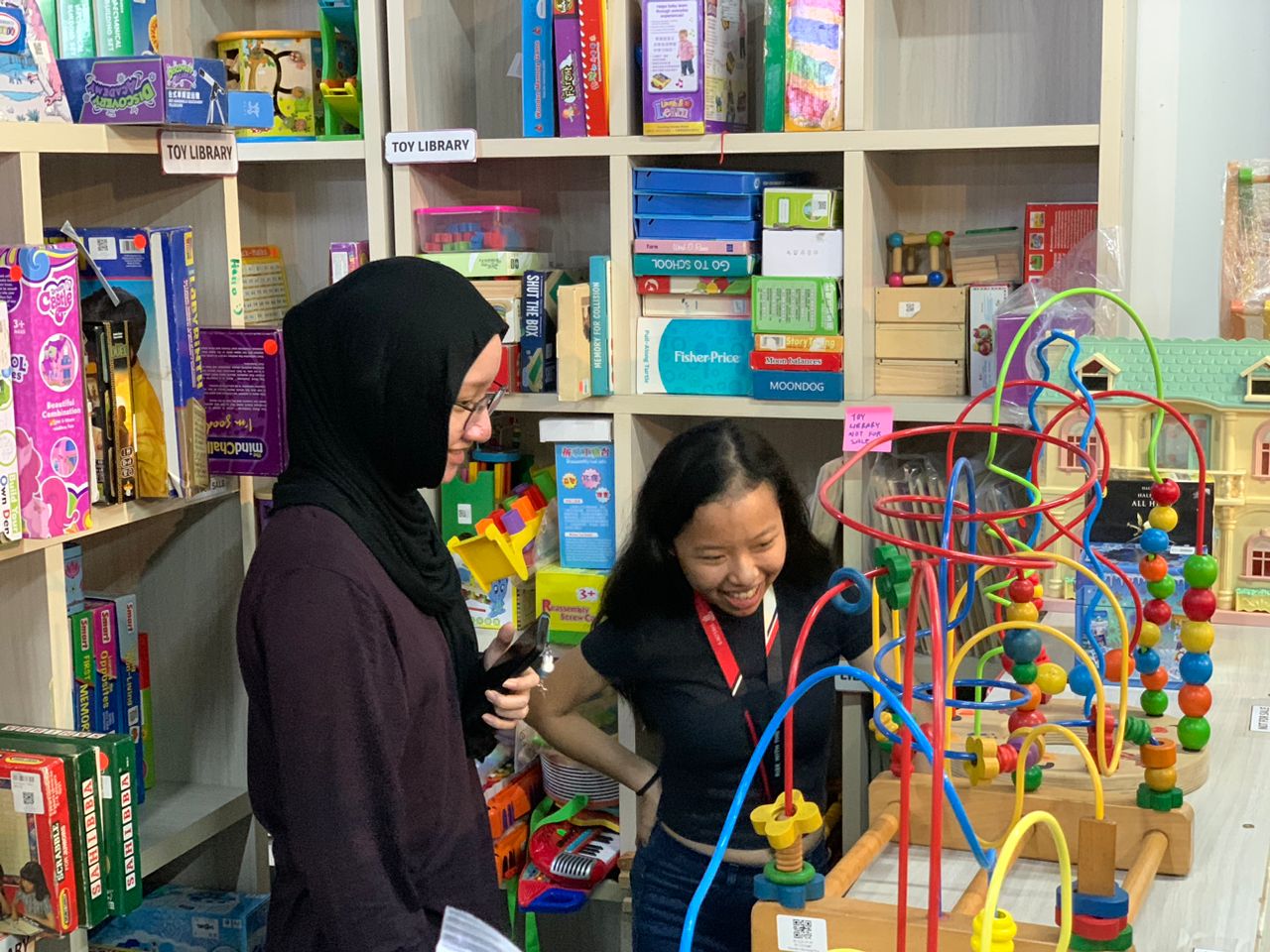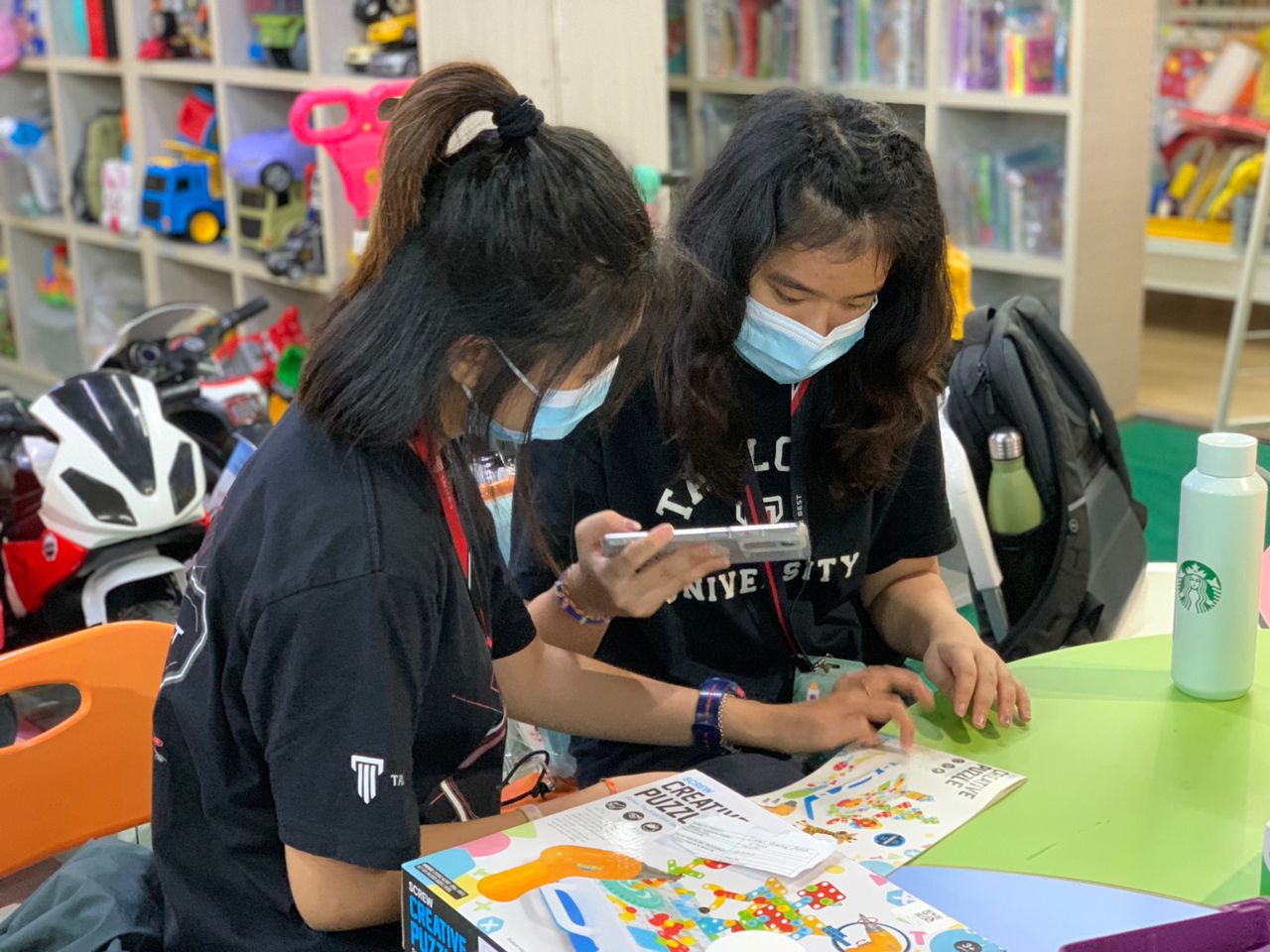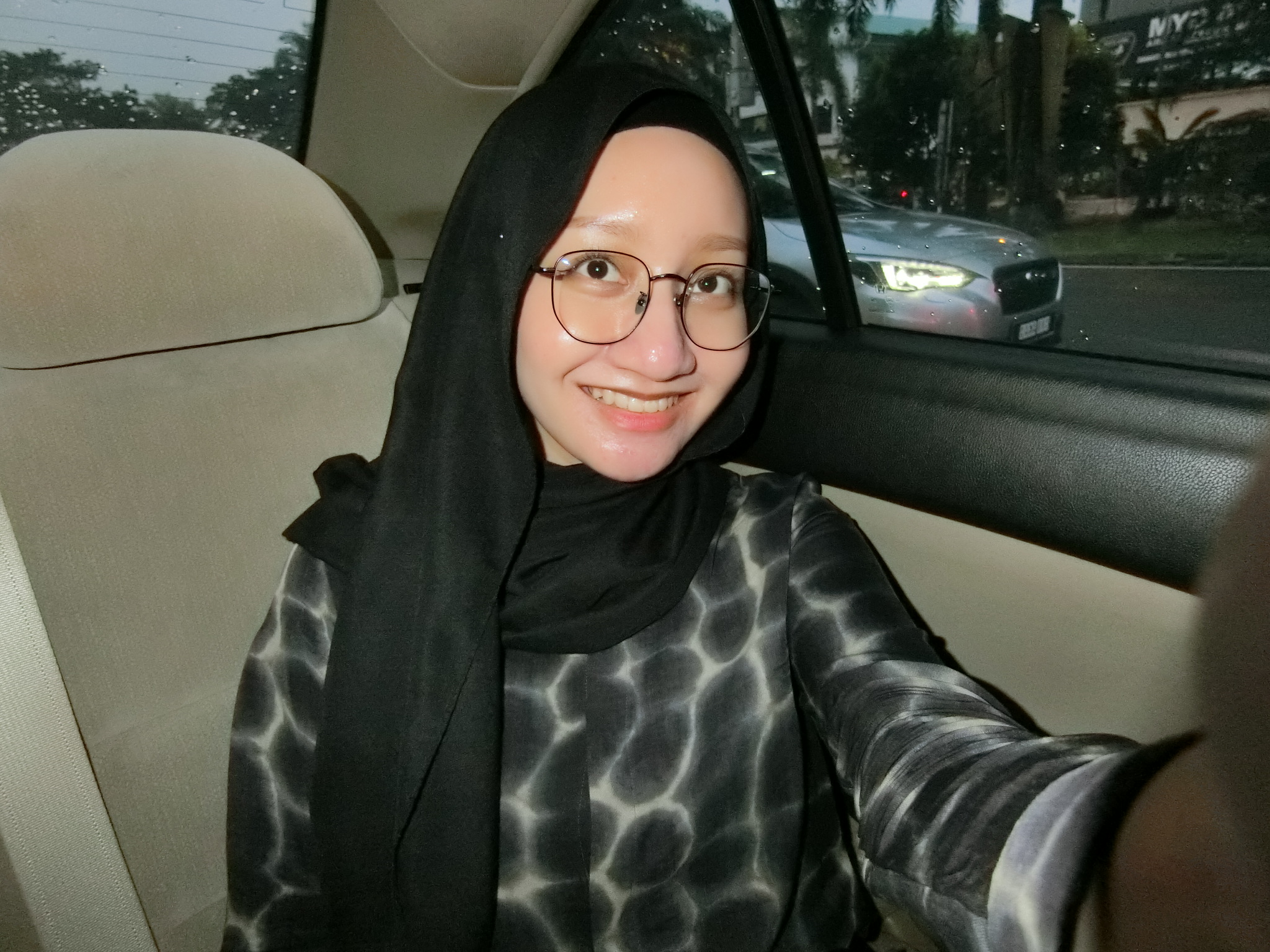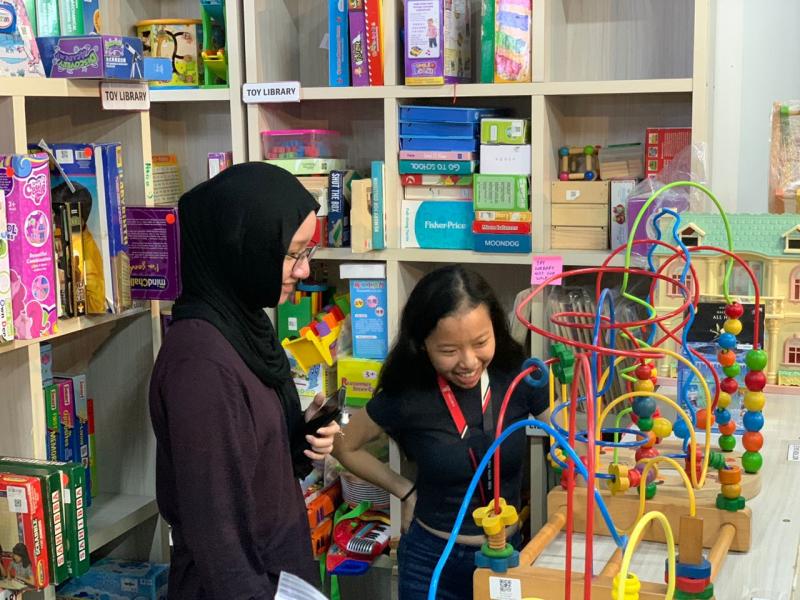Learning Starts With Play
When I was at Sunway Mentari Refugee Learning Centre as part of my programme, I taught children about the water cycle through sensory play using materials such as a glass tray, shaving foam, baby oil, food colouring, and water. The children were keen to participate and were able to actively recall what they learned in the end, and I was fortunate to witness the children actively develop their knowledge and understanding of the matter using play.
As an educator-in-the-making, I also witnessed firsthand how children play with different materials and toys, which I am then able to learn, adapt, and create inclusive and effective learning environments. For example, during a session of play pretend, my cohort made individual prop boxes with different themes and items. Each child interacted differently with the materials, as we condoned imagination and guided them with the guidelines of our teaching objectives. Real-world exposures like these allowed me to tailor my teaching material to cater to a group of diverse students.

Another experience I have is during my time volunteering at Toy Libraries Malaysia. It is a space intended to create a safe location for children to play outside of their homes, as well as a space for intergenerational activities, where parents or grandparents could play with their children or grandchildren. One of the locations is at Da Men Mall, which is also a drop-off location for gently used toys and children's books, as well as a community toy library where children can borrow toys and return them to borrow other toys. When I was there, I was tasked to create toy pairing cards, a guide to assist parents to inspire them to fully utilise their purchased or borrowed toys. Places like Toy Libraries Malaysia provide accessibility to a wide variety of toys that can stimulate different parts of the brain and enable opportunities for children from lower-income families to learn through play, especially with the increasing cost of toys.
Volunteering has been a transformative experience as I gained invaluable insights into the community involvement, and multifaceted impact of play-based learning on educators, parents, and most importantly, children. Educators and parents need to work hand-in-hand as this approach requires a lot of thought and planning to be effective, which is a testament to the intricacy of the field of early childhood education. A thorough grasp of teaching techniques, curriculum design, and child development is essential for educators, and necessary information can be shared with parents so that effective play-based learning happens at home too.

As a start for parents, ample playtime is important for children to engage in activities using everyday materials to aid a child's critical thinking. By participating in their child’s play-based learning journey, parents are able to gain a deeper understanding of their child’s interests, learning styles, and potential.
Additionally, when purchasing learning materials, parents should consider toy pairing to provide multiple benefits during play, studying each toys’ use and elements. With an environment at home that complements the play-based learning experience in their kindergarten or play school, parents and educators partner together for the overall growth and development of a child.
Play-based learning brings forward many advantages for children and it is fascinating and intriguing as every child learns differently. My fervent hope is that play-based learning is better known and understood in Malaysia, where the community at large embraces and supports the principles of it. Whether it is aiding in supplying the toys, being aided or being an advocate, everyone must play a role in children’s education, big or small. My aspiration extends to the integration of play-based learning into future revised curricula, replacing conventional teaching methods. By making this shift and actively collaborating, we can ensure that every child, regardless of their socioeconomic background, has equal access to an education that fosters holistic development through meaningful, play experiences.

Ariana Suraya Binti Fatzunnahar is heading into her fourth semester in Diploma in Early Childhood Education at Taylor’s College.
This article is provided by Taylor’s College
The views expressed here are those of the author/contributor and do not necessarily represent the views of Malaysiakini.
RM12.50 / month
- Unlimited access to award-winning journalism
- Comment and share your opinions on all our articles
- Gift interesting stories to your friends
- Tax deductable
